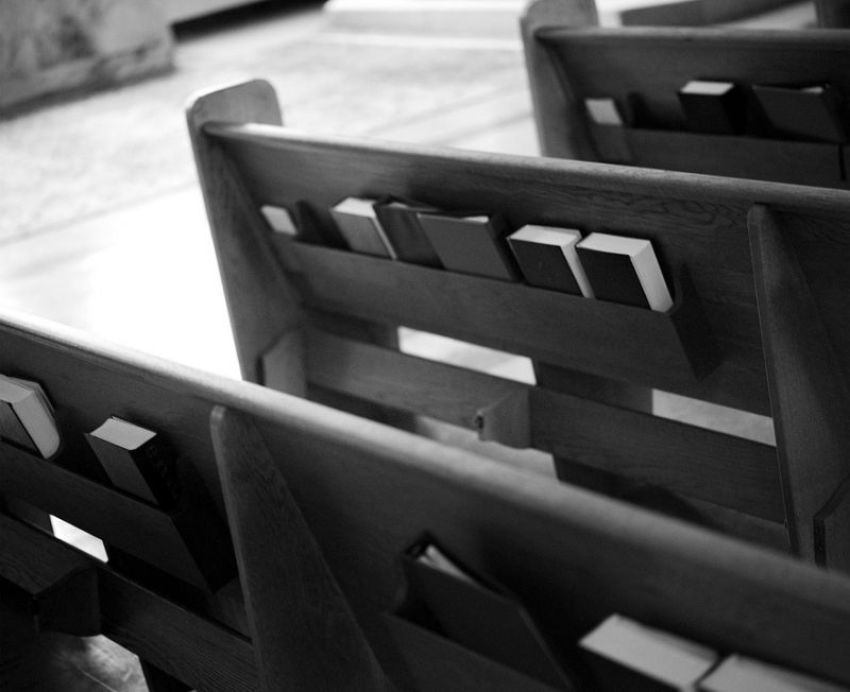Maine church takes challenge to Gov. Mills' COVID-19 restrictions to Supreme Court
Church takes challenge to Maine COVID-19 restrictions to Supreme Court

A congregation in Maine has filed a request for the United States Supreme Court to hear its lawsuit against the state's restrictions on in-person worship.
Calvary Chapel of Bangor filed a petition for a writ of certiorari to the Supreme Court on Monday, having failed to get an injunction against Maine’s restrictions at the lower court level. If granted, the high court will hear their appeal.
The petition argued that since last year, Gov. Janet Mills has issued orders “extensively restricting when, where, and how Mainers may exercise their liberties, including gathering for religious worship, while exempting myriad businesses and nonreligious activities from similar gathering restrictions.”
“Executive Order 16 requires churches and religious worship services to adhere to a strict 50-person limit regardless of the size of the sanctuary or Church facility,” stated the petition.
“Yet, as has been true since the beginning of the Governor’s regime of restrictions on religious gatherings, myriad businesses and industries are wholly exempt from the 50-person limit, including transportation facilities, bus stations, train stations, airports, manufacturing facilities, gas stations and laundromats, industrial manufacturing, post offices and shipping outlets, financial payment, clearing, manufacturing, food packaging and processing, and legal, business, and professional services …”
The church also noted in its suit that under the orders, the pastor, members and volunteers can carry out nonreligious activities at Calvary Chapel, but worship has been "totally banned or severely restricted in the same building."
Liberty Counsel founder and Chairman Mat Staver, whose organization is helping to represent Calvary Chapel, said in a statement that he believed Mills’ actions were “unconstitutional.”
“The U.S. Supreme Court has already ruled against these unconstitutional worship bans, and Governor Janet Mills has continued her draconian restrictions against churches and places of worship,” stated Staver. “The High Court now must end Governor Mills’ unconstitutional actions once and for all.”
In May 2020, Calvary Chapel sued Mills, seeking a temporary restraining order over the in-person worship restrictions she ordered in an attempt to curb the spread of the virus.
That same month, U.S. District Court Judge Nancy Torresen denied the motion for a temporary restraining order, arguing that the “harm to the State that would come from an order requiring it to exempt religious institutions from gathering restrictions is profound.”
“The State is managing an extraordinary array of issues, and it has responded to the challenges raised by COVID-19 by establishing uniform standards and restrictions that are based on evolving scientific evidence,” ruled Torresen.
“Governor Mills has laid out a path for organizations to seek to ease restrictions. Upsetting the careful balance being drawn by Maine’s Governor at this time would have an adverse effect on the public interest.”
Last December, a three-judge panel of the U.S. Court of Appeals for the First Circuit unanimously ruled against the church, upholding an earlier district court ruling.
“Let us be perfectly clear: public officials do not have free rein to curtail individual constitutional liberties during a public health emergency,” wrote Circuit Judge Bruce Selya for the panel.
“Even so, the public interest demands that public officials be accorded considerable latitude to grapple with the ‘dynamic and fact-intensive’ considerations involved in mounting an effective response.”
Last November, the Supreme Court ruled 5-4 in Roman Catholic Diocese of Brooklyn v. Cuomo that certain New York restrictions unfairly singled out religious groups.
“Members of this Court are not public health experts, and we should respect the judgment of those with special expertise and responsibility in this area. But even in a pandemic, the Constitution cannot be put away and forgotten," stated the high court majority.
"The restrictions at issue here, by effectively barring many from attending religious services, strike at the very heart of the First Amendment’s guarantee of religious liberty.”



























